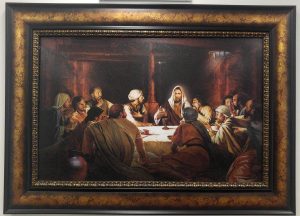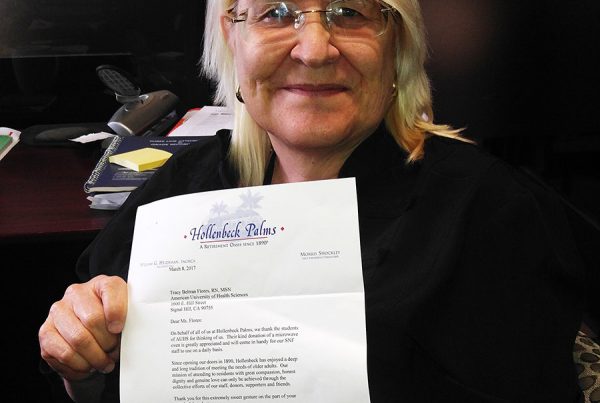Mr. Miyagi, the Karate Kid, and God
By John V. Schloss, PhD
Few realize that the character of Mr. Miyagi in the movie “Karate Kid” was based on an actual person, Miyagi Chōjun (宮城 長順, April 25, 1888 – October 8, 1953). The author of the script for this movie, Robert Mark Kamen, was a student of Gōjū-ryū Karate, derived from the teachings of Mr. Chōjun Miyagi, an Okinawan martial artist who founded Gōjū-ryū.
Karate, derived from the Japanese words kara (empty) and te (fist or hand), is an unarmed fighting style introduced to Japan from Okinawa, where it was called Te, in the 1920s. Okinawans were under the control of the Japanese Samurai and developed their unarmed fighting style as a means of defending themselves against oppression. When the Okinawan Te masters demonstrated the superiority of their fighting style against the Japanese Jiu-Jitsu (initially developed in India) masters, it became one of the most popular martial arts practiced in Japan.
In its purest form, Karate is more of a philosophy, method of self-defense, and way of life than an offensive fighting system. Unarmed fighting systems for self-defense go back to antiquity and are frequently associated with priests, monks, and various religious orders in origin. One of the oldest fighting systems from ancient Israel is Abir, which may have originated more than 3,800 years ago.1 Abir is not an offensive fighting system but a self-defense method for resolution of conflicts with no peaceful remedy. The Israel Sport Authority recognized Abir in 2008.
Several precepts are gained from the movie “Karate Kid” and embraced by many different systems of self-defense, biblical teachings, and beliefs held by AUHS:
- Discipline: control should come from within
- Confidence: your mind and body are capable of many things, don’t let your mind get in the way of what is possible
- Fear: you should overcome fear and not let fear control you
- Respect: all deserve your consideration, including yourself
- Humility: recognize that you are not the center of the universe, but a part of something bigger than yourself
- Honor: the importance of living a life based on honor
- Obligation: you need to help and protect others, especially those less fortunate than yourself
It should not be surprising that many martial arts practitioners share a belief in God and a God-centered approach to life. The actor Chuck Norris is a prominent practitioner of Tang Soo Do, a Korean fighting system. Chuck Norris is a devoted Christian and six-time world Karate champion.2 The lessons of the movie “Karate Kid” and Judeo-Christian ethics align perfectly.
The experience of the character Daniel LaRusso in the movie “Karate Kid” is mirrored by my own life. At 14, I began studying the Gōjū-ryū style of Karate. By the age of 17, I was teaching classes in martial arts to students that ranged in age from less than 4 to almost 60 years old. In my first year of college, I continued teaching for-credit self-defense classes. More than 50 years later, this early developmental experience continues to help guide my life.
It has been interesting to watch the development of martial arts in the United States. I met future film star Chuck Norris when he fought the former Marine Joe Lewis (a practitioner of Shōbayashi Shōrin-ryū, an Okinawan style) in 1967. Joseph Henry Lewis (March 7, 1944 – August 31, 2012) later held titles as the “United States Heavyweight Kickboxing Champion,” and “World Heavyweight Full Contact Karate Champion,” and his friend Bruce Lee called him “The Greatest Karate Fighter of All Time.”
Here is the history of Mr. Miyagi’s Gōjū-ryū school of Karate:
Jitsumi Gōgen Yamaguchi (January 20, 1909 – May 20, 1989) was a student of Chōjun Miyagi who founded the Karate-dō Gōjū Kai Association. The Emperor of Japan decorated him with the Blue Ribbon Medal of the fifth order of merit for the worldwide spread of Japanese martial arts in 1968.3 Gōgen Yamaguchi was named Chōjun Miyagi’s successor to lead the Goju Ryu style of Karate.4
Peter George Urban (August 14, 1934 – April 7, 2004) was one of the few non-Japanese students of Gōgen Yamaguchi. He has been called “The George Washington of American Karate” and “The Godfather of American Goju.”
Louis Anthony Angelopoulos (December 18, 1937 – June 8, 2020), better known as Lou Angel, was a student of both Peter Urban and Gōgen Yamaguchi. Lou Angel opened a dojo, or school, in Tulsa, Oklahoma, in 1961. I became a student under Lou Angel in 1965. Louis Anthony Angelopoulos was a member of the Greek Orthodox Church.
One of the best fighters in Angel’s dojo, Bill Briscoe,5 fought and bested Joe Lewis (above) in a tournament back in 1970. After an impromptu sparing match, Bill Briscoe once told me if I gained 30 pounds no one would be able to take me, just after he bloodied my nose. Unfortunately, I have since gained more than 30 pounds, but in all the wrong places. That may be why I chose to become a biochemist.6,7
- https://www.martialtribes.com/jewish-martial-art-practiced-in-israel/; https://www.abir.org.il/what-is-a-martial-art
- https://www.baptistpress.com/resource-library/news/chuck-norris-tells-how-gods-plan-was-bigger-than-his-own/
- https://translesbian.wordpress.com/2013/07/02/jitsumi-gogen-yamaguchi/ — Paul Starling, The End of an Era, Obituary Gogen Yamaguchi in Australasian Fighting Arts, Aug/Sept Issue 1989 pp.68-70
- https://www.amazon.com/Karate-Dojo-Traditions-Tales-Martial/dp/0804817030 — Peter Urban The Karate Dojo: Traditions and Tales of a Martial Art Paperback – Aug. 15 1991, Tuttle Publishing; Reprint edition (August 15, 1991); ISBN-10 : 0804817030, ISBN-13 : 978-0804817035.; https://www.amazon.com/Karate-Sensei-Peter-Urban/dp/0920129064 — Peter Urban in The Karate Sensei, Masters; 1st edition (November 30, 2006), ISBN-10 : 0920129064; ISBN-13 : 978-0920129067
- http://tulsawildbunch.org/about.html
- http://americangojuhistorytraditionsvalues.blogspot.com/2008/02/who-is-who-in-american-goju-karate.html
- https://www.researchgate.net/profile/John-Schloss-2







